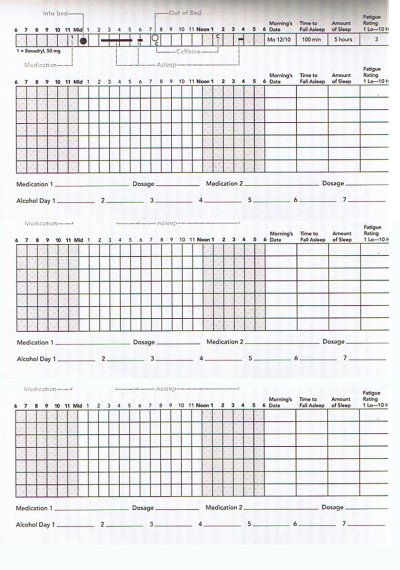bbbamI
Give me a museum and I'll fill it. (Picasso) Give me a forum ...
Nah...I swing with a multitude of partners only on the dance floor. Besides, I don't have enough towels...You can still have nightly sex you just need a lot more partners !
Nah...I swing with a multitude of partners only on the dance floor. Besides, I don't have enough towels...You can still have nightly sex you just need a lot more partners !
I just read something that said we sleep our best when the room is 60-68 degrees and that people with higher core temperatures have a harder time getting to sleep and staying asleep.
Turn off the heat and open the windows!
Alcohol often is thought of as a sedative or calming drug. While alcohol may induce sleep, the quality of sleep is often fragmented during the second half of the sleep period. Alcohol increases the number of times you awaken in the later half of the night when the alcohol's relaxing effect wears off. It prevents you from getting the deep sleep and REM sleep you need because alcohol keeps you in the lighter stages of sleep.
With continued consumption just before bedtime, alcohol's sleep-inducing effect may decrease as its disruptive effects continue or increase. The sleep disruption resulting from alcohol use may lead to daytime fatigue and sleepiness. The elderly are at particular risk for alcohol-related sleep disorders because they achieve higher levels of alcohol in the blood and brain than do younger adults after consuming an equivalent dose. Bedtime alcohol consumption among older adults may lead to unsteadiness if walking is attempted during the night, with increased risk of falls and injuries.
Interesting how variable the sleep patterns are when there is no external schedule to drive the hours. I've been wondering how I will settle in when I join ER in 2 weeks. Sounds like there is no reason to worry about it when I don't sleep very well.
 One of the most wonderful things to me about the first month of ER was sleeping in as much as I wanted. I felt like I was in sleep deficit prior to retirement. I don't think I sleep too much now (for example, yesterday I napped for about an hour and last night I slept for about 7 hours), but just awakening naturally seems to have an incredibly restorative and rejuvenating effect for me.
One of the most wonderful things to me about the first month of ER was sleeping in as much as I wanted. I felt like I was in sleep deficit prior to retirement. I don't think I sleep too much now (for example, yesterday I napped for about an hour and last night I slept for about 7 hours), but just awakening naturally seems to have an incredibly restorative and rejuvenating effect for me. After retirement, one day I was thinking about how frightened I was as a little child without a nightlight. It occurred to me that at 61, after all these years of sleeping in a completely dark room, there is no reason to sleep in a completely dark room unless I want to. I don't like awakening in the middle of the night in a completely dark room because I find it to be disorienting. So, I have been leaving my dressing room light on really low (it is on a dimmer). I love it.I keep the bedroom very dark.

In my case, if I drink wine with dinner, I'll sleep like a baby til about 2ish a.m., and that's it for the night. A co-worker shared that she has the same experience; we're calling it the wine effect. If you normally have wine with dinner, try skipping it a couple of nights and see if you can stay asleep longer. Also, various medications will disrupt my sleep pattern. Right now, I have to take steroid tablets for 5 days in a row for pleurisy, and I would swear these darn pills are keeping me awake even though I take them in the morning. Review your medications and see if sleep interuption is indicated with use.
The sound of aircraft engines makes me sleepy. I've been on more than one flight where I fell asleep prior to takeoff and wasn't awakened until the wheels touched the runway on landing. And on a couple of these flights I was a passenger...
One of the best aspects of my (so far, 41 day) retirement has been the freedom to go to bed when I want to, and sleep when I want to, for however long I want to.
When I awaken like that, and can't get back to sleep, I just get up and start the next day. I will probably feel sleepy later on, and take a long nap when I feel like it.
One thing that I have noticed that to me is very odd, is that some days I need a lot of sleep (like, maybe 10-11 hours) and other days I seem to need only 5-6 hours. One would think that my sleep needs would be consistent from day to day, but I guess they are not.
I had one of those nights (days) today. Barking dogs woke me around 4 this morning. Rather than get frustrated by my inability to get back to sleep, I got up, made a pot of coffee and started my day. At 8:30 I took a one hour nap and woke up feeling fine.When I awaken like that, and can't get back to sleep, I just get up and start the next day. I will probably feel sleepy later on, and take a long nap when I feel like it.
Sometimes I think brushing your teeth has a "wake-up" influence on you. You're watching TV, and falling asleep. You go upstairs, brush your teeth and get into bed, and you're wide awake.
Sometimes I brush them an hour or so earlier to avoid that.
